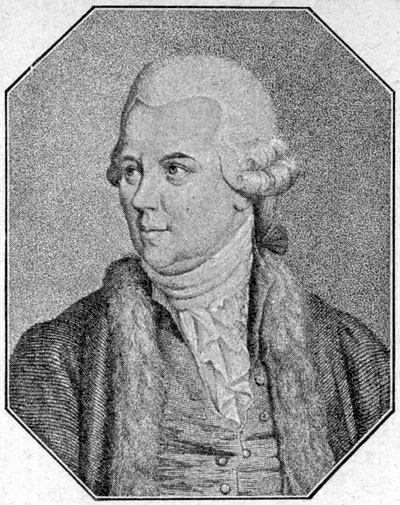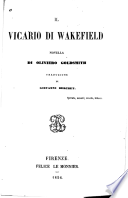“Recitare una commedia non puramente sentimentale, fu cosa pericolosissima.”
Origine: Citato in Enrico Piceni, introduzione a Christopher Morley, Tuono a sinistra, Arnoldo Mondadori Editore, 1947.
Oliver Goldsmith è stato uno scrittore e drammaturgo irlandese.

“Recitare una commedia non puramente sentimentale, fu cosa pericolosissima.”
Origine: Citato in Enrico Piceni, introduzione a Christopher Morley, Tuono a sinistra, Arnoldo Mondadori Editore, 1947.
Origine: Il vicario di Wakefield, p. 83
Origine: Il vicario di Wakefield, p. 5
Origine: Da The Citizen of the World, lettera XV; citato in Peter Singer, Utilitarismo e vegetarianesimo, in Aa. Vv., Etica e animali, traduzione di Brunella Casalini, Liguori Editore, Napoli, 1998, p. 253 (in epigrafe). ISBN 88-207-2686-6
Utet, 1966, p. 192
Il vicario di Wakefield
Utet, 1966, p. 62
Il vicario di Wakefield
Origine: Il vicario di Wakefield, p. 50
“Quella virtù che ha sempre bisogno di essere custodita, non vale la pena che la si custodisca.”
Utet, 1966, p. 36
Il vicario di Wakefield
Act II.
The Good-Natured Man (1768)
“I love everything that's old: old friends, old times, old manners, old books, old wines.”
She Stoops to Conquer (1771), Act I
Origine: The Vicar of Wakefield
“Handsome is that handsome does.”
Origine: The Vicar of Wakefield (1766), Ch. 1.
“Such is the patriot's boast, where'er we roam,
His first, best country ever is, at home.”
Origine: The Traveller (1764), Line 73.
The Art of Poetry on a New Plan (1761), vol. ii. p. 147.
The saying "he who fights and runs away may live to fight another day" dates at least as far back as Menander (ca. 341–290 B.C.), Gnomai Monostichoi, aphorism #45: ἀνήρ ὁ ϕɛύγων καὶ ράλίν μαχήɛṯαί (a man who flees will fight again). The Attic Nights (book 17, ch. 21) of Aulus Gellius (ca. 125–180 A.D.) indicates it was already widespread in the second century: "...the orator Demosthenes sought safety in flight from the battlefield, and when he was bitterly taunted with his flight, he jestingly replied in the well-known verse: The man who runs away will fight again".
“That virtue which requires to be ever guarded is scarce worth the sentinel.”
Origine: The Vicar of Wakefield (1766), Ch. 5.
“By sports like these are all their cares beguil'd;
The sports of children satisfy the child.”
Origine: The Traveller (1764), Line 153.
“Our greatest glory is not in never falling, but in rising every time we fall.”
Variante: Our greatest glory consists not in never falling, but in rising every time we fall.
Origine: The Citizen of the World, Or, Letters from a Chinese Philosopher, Residing in London, to His Friends in the Country, by Dr. Goldsmith
“Ask me no questions, and I'll tell you no fibs.”
She Stoops to Conquer
She Stoops to Conquer (1771), Act III
Variante: Ask me no questions, and I'll tell you no lies.
Origine: The Citizen of the World, Or, Letters from a Chinese Philosopher, Residing in London, to His Friends in the Country, by Dr. Goldsmith
Origine: The Vicar of Wakefield (1766), Ch. 29, Song, st. 1.
“To what fortuitous occurrence do we not owe every pleasure and convenience of our lives.”
Origine: The Vicar of Wakefield (1766), Ch. 21.
“[To Mr. Johnson] If you were to make little fishes talk, they would talk like whales.”
From James Boswell's Life of Johnson (1791), April 27, 1773.
“Where wealth and freedom reign contentment fails,
And honor sinks where commerce long prevails.”
Origine: The Traveller (1764), Line 91.
Origine: Retaliation (1774), Line 107.
“Here lies David Garrick, describe me, who can,
An abridgment of all that was pleasant in man.”
Origine: Retaliation (1774), Line 93.
“Even children followed with endearing wile,
And plucked his gown, to share the good man's smile.”
Origine: The Deserted Village (1770), Line 183.
“The watchdog's voice that bayed the whispering wind,
And the loud laugh that spoke the vacant mind.”
Origine: The Deserted Village (1770), Line 121.
“Thou source of all my bliss, and all my woe,
That found'st me poor at first, and keep'st me so.”
Origine: The Deserted Village (1770), Line 413.
From James Boswell's Life of Johnson (1791), October 26, 1769.
Origine: The Traveller (1764), Line 265.

